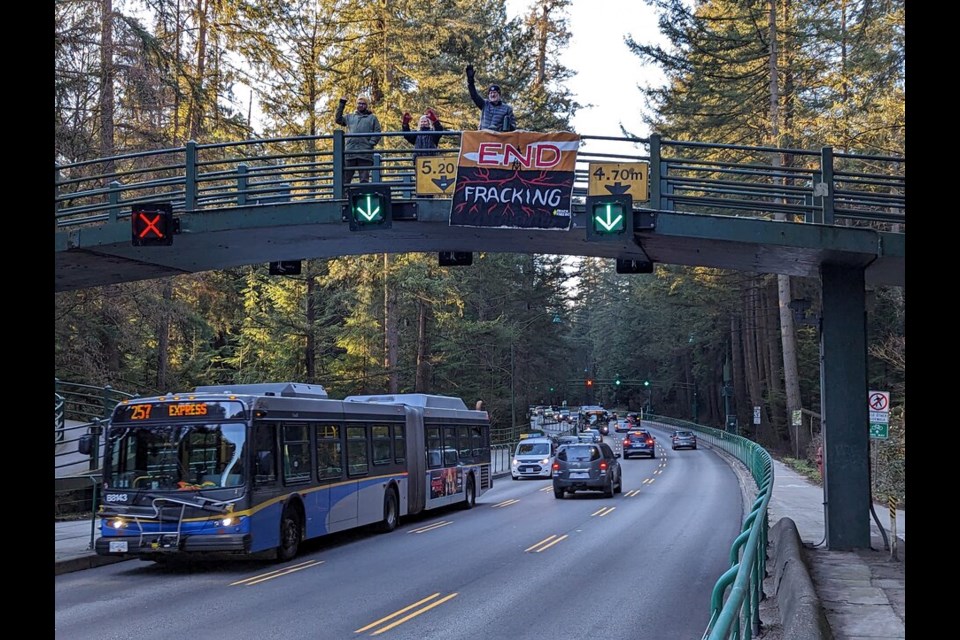Nearly 100 groups opposed to drilling for natural gas in British Columbia have hung banners across overpasses in more than 40 communities.
The campaign, dubbed “End Fracking,” comes a week after the approval of the Cedar LNG, a proposed export facility in Kitimat, British Columbia, and days after the proposed Woodfibre LNG facility in Squamish vowed to achieve “net zero from the first day of operations.”
The gas facility’s promise came after the province announced all LNG projects in B.C. must be net zero by 2030 as part of its Energy Action Framework.
That wasn’t enough for Frack Free BC, a group that came together during Premier David Eby’s cabinet swearing-in ceremony last fall. The group is calling on Eby “to stop issuing new permits for gas wells, set a date to phase out existing production, and develop a plan to support workers and communities to transition to a sustainable economy.”
“Most British Columbians would be shocked to learn that there are over 30,000 fracking wells in B.C.’s northeast, a number that could double in the next decade, if Premier Eby chooses not to stand up against LNG expansion,” Kiki Wood, a senior oil and gas campaigner for Stand.earth, said in a statement.
Dave Gregory, from the Nelson chapter of the Council of Canadians, said the province and the rest of Canada should follow Europe’s example and ban fracking.
“Even the Conservative government in the U.K. has done so. Fracking is immoral because it leaks methane, pollutes groundwater, and causes mini-earthquakes,” he said.
Fracking, or unconventional natural gas production as industry describes it, currently makes up more than 90 per cent of all gas production in the province, according to the B.C. Energy Regulatory.
The province is also currently assessing whether it should approve an expansion to the Tilbury LNG facility in Delta.
Proponents of liquefied natural gas (LNG) say it burns cleaner than coal or oil, making it a critical tool to lower carbon emissions. They say expanding or building new gas facilities will help displace more carbon-intensive coal as a dominant fuel in places like China, and can also be used to power shipping.
Detractors point to concerns over human health and human-triggered earthquakes. And when LNG leaks into the atmosphere as fugitive emissions, the methane-heavy gas produces a greenhouse effect more than 80 times more potent than carbon dioxide over a 20-year period.
Methane emissions have steadily risen across the planet since 2007, and by 2020, nearly 7.5 per cent of Canada’s greenhouse gas output came from fugitive methane emissions in the oil and gas sector, according to a national inventory.
In 2021, the International Energy Agency produced an influential report looking at what the world would have to do to achieve net-zero emissions by 2050, the minimum but formidable target countries around the world need to hit in order to stave off 1.5 C in global temperature rise from pre-industrial levels. That's the point where scientists say irreversible damage will be done to the Earth’s climate system.
Among its most urgent recommendations: governments around the world should immediately axe new oil and gas exploration and scrap new LNG projects.


